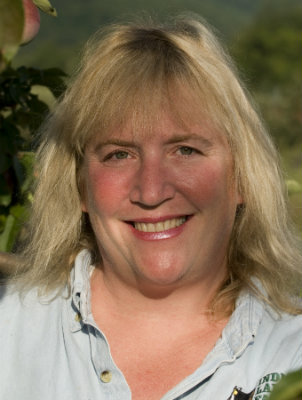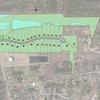Laura Ten Eyck
NEW SCOTLAND — Laura Ten Eyck, 53, says she got her start in government when she wrote for The Enterprise as a Hilltown reporter.
“That’s how I learned how town government functions,” she said.
Ten Eyck later became a retail manager at Indian Ladder Farms — her family’s farm — where she worked for 24 years. Nine years ago, she started working for the American Farmland Trust, where she still works.
(Read up on the issues in New Scotland and Ten Eyck's opponent, Ally Moreau).
Ten Eyck credits her experience as a consultant for five different towns for agricultural and protective plans as another way she learned more about local government and agricultural law. Similar to creating a comprehensive plan but focusing on agriculture, Ten Eyck spent about two years each developing plans for the towns of Wright, Seward, Carlisle, Hoosick, and Bethlehem.
Ten Eyck also began serving on the New Scotland Planning Board in March of last year after being appointed to fill a vacancy. This February she was again appointed to fill a vacancy, this time on the town board after Doug LaGrange was elected supervisor. The Nov. 8 election will determine if she keeps this position.
Ten Eyck has lived in the town all her life — besides her time at Emerson College in Boston — and has a son who graduated from Voorheesville’s high school.
“You get to know a lot of people you wouldn’t normally when you’re a parent,” said Ten Eyck.
Looking at the closure of VAAS, Ten Eyck acknowledges that volunteerism is important but difficult to administer when both parents in a household are often working, and when farmers — often relied on as volunteers, said Ten Eyck — are being replaced by commuters in the town.
Although some volunteer services have been put into place by the town, such as the village cleanup, Ten Eyck said it would bode well to have the town organize volunteer services such as EMS squads better.
Ten Eyck has said that Albany County EMS already has a contract with the town. The town is currently developing its budget and later will look at negotiating a new contract with the county. Ten Eyck said that the impact should not affect the town budget dramatically for these reasons.
In regards to the proposed development off of routes 85 and 85A, Ten Eyck has said that she would consider it as long as all her concerns were met.
“I do feel strongly that we do really want it to be walkable, user-friendly,” she said.
Looking at the initial plans, Ten Eyck said she saw no easy pedestrian access to the building.
Ten Eyck said she was concerned over getting sidewalks put in place at the building. She added that such concerns, among others, could be addressed the implementation of the hamlet master plan that is now being reviewed and considered for adoption. Ten Eyck said that it is important that such a plan create regulations that maintain the town’s character, and not become “just any town with a McDonald’s and a Rite Aid.”
In regards to the state’s tax cap, Ten Eyck has said that she is not concerned that it will need to be superseded.
“I think we’re far from that issue being a concern,” she said, adding that this year’s budget does not indicate such a situation would happen any time soon, and so it would be impossible to say what she would do if the situation came up.
Ten Eyck said that she is concerned with the issue of development in general in the town, and that it is important to use land-use regulations and zoning to maintain the town’s rural character.
“I think it can be done,” she said, noting that only the town board can carry out these local regulations.
Ten Eyck suggested adopting regulations that incentivize conserving open space and land, and also contribute to growth for farmers and farmland. Ten Eyck also suggested putting in place regulations that make a community more walkable or bikeable, making use of the nearby rail trail. She added that resources in the area could bring in many local businesses with small-scale tourism, particularly in the proposed hamlet.
Ten Eyck says challenges ahead include applying for funds to update the town’s comprehensive plan, looking into renewable energy like solar, and meeting the appropriate regulations for developments. She is also concerned over the town’s denying applications due to a lack of water services.
“Eventually, people will find ways to get water,” she said.
Ten Eyck, who is also involved with the Mohawk Hudson Land Conservancy, says she is concerned about preserving land for scenic or ecological reasons.
“It’s really, actually, kind of incredible that we have this incredibly dramatic state park land right here in our town,” she said, “And I think we kind of take it for granted sometimes.”
Ten Eyck said such a natural resource should be protected and capitalized on.
“When the rest of the county is all wall-to-wall Colonie-type development, we’ll be here with something really, really special.”


